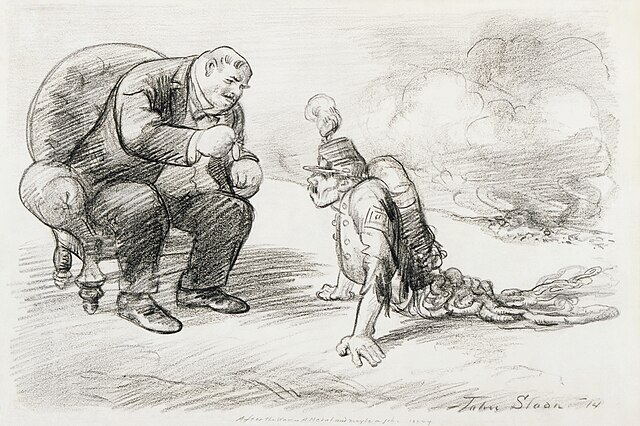The day had been a tough one for Larkin René Parquet de Parque. It had been full of disappointments. Though he lived in a timeline in which global warming had been reversed in a timely fashion through concerted effort among nations – which meant of course the weight of opinion of the greedy and their ability to manipulate the weak-minded had been countered by overwhelming passion for preserving all life now and in the future – no amount of good will on the part of others could guarantee that there wouldn’t be days when unforeseen difficulties would dominate the hours and thus defeat one’s inclination toward a good mood. Such a day was this.
Not even the ultimate defeat of the capitalist domination of economies could forestall the inevitability of such a day. The switch from plastics to various renewable configurations of carbon and glass was key to diminishing and ultimately eradicating the pollution of land, water, and air. One would think such a switch would somehow minimize the chance of having a bad day full of bad difficulties. And it may have, but minimizing a chance and preventing an inevitability are two entirely different things.
Larkin René Parquet de Parque did one thing and one thing only: he went from town to town, neighborhood to neighborhood, with a very large rock tumbler. He would send out notices a few days before his impending visit urging people to bring their empty glass bottles. Usually such bottles were recycled by the municipality. De Parque would arrive, not to supplant such services, but as a compliment to them. The bottles that were brought were shattered in a bin, tumbled in de Parque’s rock tumbler, and artificially turned into “beach glass” for use in people’s vases, landscaping, and terrariums. Sometimes he would stay more than one day if there was sufficiently high demand.
He had recently taken his rock tumbler in for a tune up, and the following day, in front of an entire neighborhood of beach glass enthusiasts who’d saved their prettiest-colored bottles for the entire year, the rock tumbler refused to tumble. Its motor was on the fritz. It turned out that the mechanic tuning it up had failed to replace an important washer. The mechanic had been too lazy to double-check her washer checklist. Don’t assume it was the absence of a profit incentive that caused it. The mechanic was part... read more
Sitting at the seder table alongside three women: a movie star, a small business owner, and a landscape architect, I eavesdropped on their conversation as I ate my matzoh ball soup. And the businesswoman mentioned that some of her workers took time off when they had their periods. She could understand it in the case of one of them who had a medical condition that caused her immense pain and discomfort, but the practice had become habitual among workers she wasn’t sure required it.
All three women began chiming in about the virtues of pushing oneself past one’s perceived limitations when feeling unable or reluctant to expend the effort to accomplish something, particularly something athletic like waking up for a dance class at six ay em or dragging oneself to the bathroom after an insufficient night’s sleep or exercising past the point of pain or exhaustion.
They lost the thread of the workers wanting time for themselves, but implicit behind all this self-congratulation for being such tough, rigorous women was that millennials these days didn’t want to do that pushing-through-limitations thing. I was thinking, “How do you know that they’re not pushing themselves in some other arena of activity unrelated to their jobs?” Because being a waiter or bartender or member of a kitchen staff might not necessarily be their passion. That might lie elsewhere. And when they’re taking time for themselves, they may not just be groaning with cramp pain, but might be using the time for a purpose of which you are entirely unaware.
I didn’t say that, of course, because all three women were, by common standards, far more accomplished than I have ever been or ever will be. And it is well known that my political doctrine of non-excellence, non-participation, and non-achievement has put me in the precarious economic position where I now find myself. I did take the opportunity to praise napping, though. But it brought home how misunderstood my calls for a universal work stoppage was destined to remain.
It also brought to mind Gayatri Spivak, the Indian feminist literary critic, and the concept from Gramsci of the subaltern, about which I understand very little. The subaltern, as the notion has developed from Gramsci through Spivak and now through my misbegotten filter, is anyone or anything who is left out of the assumptions of a given discourse by virtue... read more
Sitting at the seder table alongside three women: a movie star, a small business owner, and a landscape architect, I eavesdropped on their conversation as I ate my matzoh ball soup. And the businesswoman mentioned that some of her workers took time off when they had their periods. She could understand it in the case of one of them who had a medical condition that caused her immense pain and discomfort, but the practice had become habitual among workers she wasn’t sure required it.
All three women began chiming in about the virtues of pushing oneself past one’s perceived limitations when feeling unable or reluctant to expend the effort to accomplish something, particularly something athletic like waking up for a dance class at six ay em or dragging oneself to the bathroom after an insufficient night’s sleep or exercising past the point of pain or exhaustion.
They lost the thread of the workers wanting time for themselves, but implicit behind all this self-congratulation for being such tough, rigorous women was that millennials these days didn’t want to do that pushing-through-limitations thing. I was thinking, “How do you know that they’re not pushing themselves in some other arena of activity unrelated to their jobs?” Because being a waiter or bartender or member of a kitchen staff might not necessarily be their passion. That might lie elsewhere. And when they’re taking time for themselves, they may not just be groaning with cramp pain, but might be using the time for a purpose of which you are entirely unaware.
I didn’t say that, of course, because all three women were, by common standards, far more accomplished than I have ever been or ever will be. And it is well known that my political doctrine of non-excellence, non-participation, and non-achievement has put me in the precarious economic position where I now find myself. I did take the opportunity to praise napping, though. But it brought home how misunderstood my calls for a universal work stoppage was destined to remain.
It also brought to mind Gayatri Spivak, the Indian feminist literary critic, and the concept from Gramsci of the subaltern, about which I understand very little. The subaltern, as the notion has developed from Gramsci through Spivak and now through my misbegotten filter, is anyone or anything who is left out of the assumptions of a given discourse by virtue... read more







